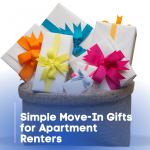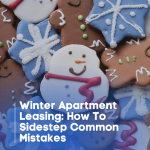
Resident Relations Strategies for Property Managers
January 31, 2018 4:06 pm Leave your thoughtsResident relationship strategies in apartment management can be complicated. They include a variety of techniques and approaches used by property managers to build, maintain, and strengthen the relationships they have with their current residents. As an owner or property manager, you know that focusing on communication, trust, and community building is a crucial part of building those relationships.
This approach moves beyond basic tenant management to a more holistic view that considers the emotional and community aspects of resident management. Implementing tenant engagement strategies, like regular community events, is really effective when it comes to enhancing the overall satisfaction and loyalty of residents.
Nationally, average resident retention rates hover around 52%. High retention rates correlate with better resident relations. Resident relationships are key in creating a positive living environment, improving tenant retention, and building a strong community. Not only does that save you money, but it leads to a better reputation and greater success for the property.
In this article, we will go through specific strategies that make this possible. We’ll explore how to implement these approaches effectively to benefit both residents and property managers like you.
It might be helpful to know, we began our research by combing Yelp, Facebook, and Google reviews. We wanted to know what was the most consistent part of good property reviews. And here’s what we found: friendly/superior staff! Even if the residents had other issues with the building, they mentioned staff members who made a good impression on them.
Clearly, having a good relationship with your residents is vital to good reviews, resident retention, and attracting new leads. Here are some simple things you can do to keep the relationship going:
Understanding Resident Relations
Resident relations in property management is about more than just managing properties; it’s about building and nurturing relationships with the people who call these places home. It involves ongoing engagement, addressing concerns, and creating a positive living experience. The significance of resident relations lies in its direct impact on tenant satisfaction and loyalty, which are crucial for the long-term success of any property management endeavor.
Positive resident relations significantly influence a property’s reputation and its financial health. When residents feel valued and heard, they are more likely to stay longer, reducing turnover costs. Happy tenants often share their positive experiences, attracting new residents and boosting the property’s image in the community. A good reputation leads to higher demand, allowing for competitive rental rates. This directly ties resident happiness to the financial success of the property, creating a win-win situation for both managers and residents.
Effective Communication with Residents
Effective communication with residents is a cornerstone of successful property management. Clear and consistent communication builds trust and ensures that residents feel valued and heard. Here are some of the best practices for enhancing communication with your residents:
Focus on clarity and consistency. Make sure that all messages, whether through emails, newsletters, or community boards, are clear and easy to understand. Use simple language and be concise.
Consistency in communication is vital. Regularly scheduled updates, whether weekly or monthly, help residents know when to expect new information.
Transparency and regular updates are crucial. When changes occur, whether in management policies or community events, inform residents right away. If there are ongoing issues, such as maintenance or security concerns, keep the residents updated on the progress. This openness not only builds trust but also demonstrates that you value their comfort and safety. 90% of residents rate safety as a top priority in resident satisfaction surveys.
Regular updates can also be delivered through various channels like community meetings, digital newsletters, or a dedicated section on the property’s website.
Let Them Know You Care
There are little ways to let residents know you’re thinking of them: a free breakfast once a month, a renewal gift when they renew their lease, and a pumpkin carving party around Halloween. These little gestures add up to the big picture: keeping them around. If residents think you care, they’ll be more likely to stay loyal to you!
Be Honest With Them
Again, like other relationships, communication and honesty are key. If a resident comes in with a request that will take a few days to handle, be open and honest with them. Let them know that you will personally see to it that this project gets done, but that it might take time. When they realize the methods behind the work, they’ll be more likely to understand, and they’ll trust you next time with concerns.
This is a long-term relationship. Your resident is not just a customer; they’re a partner with you, for potentially a long time. Your interactions with them shape what kind of relationship you will have. Fostering strong property manager-tenant relations through open dialogue and mutual respect is key to creating a harmonious living environment. Excelling in customer service in real estate management requires a blend of prompt response to tenant queries and proactive measures to anticipate and address their needs.
Implementing a Responsive Maintenance Program
60% of residents say maintenance issues impact their decision to renew their lease. Timely and efficient maintenance is a statement of care and commitment to your residents.
To set up a responsive maintenance system, start by designing a proactive maintenance schedule. This involves regular inspections and routine maintenance activities, preventing issues before they become major problems. For example, seasonal checks on HVAC systems before the onset of extreme weather can prevent discomfort and complaints. Regularly updating this schedule based on past incidents and feedback will help you create a more effective maintenance plan.
The next step is hiring and training a skilled maintenance team. Look for individuals with not only the right technical skills but also a friendly demeanor and problem-solving attitude. Empower them with the necessary tools and training to handle a range of maintenance tasks efficiently. Your team should be adept at quickly diagnosing and resolving issues, minimizing disruption to residents.
Inform residents promptly about any upcoming maintenance activities and necessary access to their units. If a maintenance request is filed, acknowledge it immediately and provide a realistic timeline for resolution.
Update residents regularly on the progress and any changes in the timeline. If a repair is delayed due to parts availability, let the resident know as soon as possible, explaining the situation and the revised timeline. This level of communication builds trust and shows residents that their comfort and satisfaction are top priorities for you and your team.
Conflict Resolution Strategies
By addressing conflicts promptly and fairly, property managers can maintain a positive environment and build trust among residents. Here are some key steps and principles for conflict resolution:
1. Establish Open Communication: Begin by encouraging open dialogue. When a conflict arises, invite the people involved to discuss their concerns in a neutral setting. This approach helps to clarify misunderstandings and allows each tenant to express their viewpoint. Active listening is vital here. Show residents that their concerns are heard and understood. This not only calms tensions but also paves the way for a constructive resolution.
2. Identify the Root Cause: Sometimes, what seems to be the conflict’s cause might just be a symptom of a deeper issue. Digging into the root cause is important. This might involve individual discussions or mediating a group conversation. Understanding the underlying issues helps in formulating a more effective and lasting solution.
3. Maintain Neutrality and Fairness: As a property manager, it’s your responsibility to remain neutral. Avoid taking sides or making judgments based on personal biases. Fairness in handling complaints is important to preserve trust and respect among all residents. This impartiality makes sure solutions are based on facts and the best interest of the community as a whole.
4. Follow Up and Reflect: After resolving the conflict, it’s important to follow up. Check in with the involved parties to ensure that the solution is working and adjust if necessary. This step shows residents that you are committed to their well-being and the community’s health.
Set Aside Time For Your Residents
Resident events like an Oscar’s Viewing party, a Candy Apple bar, or even a Pizza Party make residents feel loved. Set aside one day a month (or even every other month) to pamper your resident! Think of it like a Date Night. On Date Night, you do everything you can to support your partner, because it really is the thought that counts! Get creative and send out fun invites to a movie night, or invite your residents to come to the Grammy’s viewing in red carpet attire!
The more that you care and the time you invest, the more your residents are likely to do the same.
Legal and Ethical Aspects
In property management, understanding your legal and ethical duties is crucial. This section provides a guide on navigating these aspects effectively. Privacy rights, anti-discrimination laws, and ethical communication practices are incredibly important to understand. As a property manager, you need to stay updated on legal changes and ethical considerations so that you can communicate with residents in the best way possible.
Respecting Privacy Rights: Property managers must respect the privacy of their residents. This includes obtaining consent before entering their apartments and sprotecting their personal information. Be aware of laws regulating these practices, such as the Fair Housing Act and local privacy statutes. Regular training on these laws is essential to ensure you and your team are always compliant.
Anti-Discrimination Laws: Ensure fair treatment of all residents, regardless of race, gender, religion, or nationality. Understanding and adhering to the Fair Housing Act is fundamental. This law prohibits discrimination in renting, selling, or financing homes. Keep abreast of any local laws that may also apply. Provide regular training to your staff on these laws to prevent unintentional discrimination.
Ethical Communication Practices: Honest and transparent communication builds trust with residents. Always be clear and truthful in your interactions. For instance, if there’s a delay in maintenance, inform the residents promptly and explain the situation. Ethical communication also means being respectful and professional in all interactions, whether in person, over the phone, or through written communication.
Staying Informed and Updated: Laws and ethical standards can change. It’s your responsibility to stay informed about these changes. Subscribe to property management publications, join relevant associations, and attend seminars or webinars. This continuous learning will not only keep you compliant but also position you as a knowledgeable and trustworthy property manager.
Understanding these things will help you maintain good relationships with residents and build a stronger community atmosphere.
Leveraging Technology for Resident Engagement
In today’s fast-paced, digital world, property managers can greatly benefit from integrating technology into their resident relations strategies. By using digital tools, you can streamline communication, gather valuable feedback, and bolster community engagement. This section will focus on how resident portals, mobile apps, and social media platforms can change the way property managers interact with their residents.
Resident Portals and Mobile Apps: Digital platforms like resident portals and mobile apps are powerful tools for enhancing communication and engagement. They offer residents easy access to a range of services and information. Online maintenance request systems, for example, allow residents to report issues quickly and efficiently, eliminating the need for time-consuming phone calls or in-person visits.
This swift and convenient process significantly improves the resident experience. Just making rent payments available online can have a huge difference. 80% of residents prefer paying rent online for convenience. Integrated payment systems in these portals simplify the rent payment process, making it more convenient for residents to stay up to date with their payments.
Social Media and Virtual Community Boards: In the era of social networking, property managers can take advantage of social media platforms to create a sense of community among residents. Platforms like Facebook groups or Instagram pages can be used to share updates, celebrate community achievements, and announce events. They also provide a space for residents to connect and communicate with each other, fostering a strong sense of community. Virtual community boards, often integrated into resident portals or mobile apps, offer a similar benefit.
Try Apartment Resident Personas
Improving your relationship with apartment residents through resident personas can be a really effective approach. Multifamily resident personas are fictional representations of your typical residents, created by gathering and analyzing data about your current residents. Start by identifying key resident groups based on demographics and conduct research to gather information about their needs and preferences. Create resident personas based on the information you gather, and use them to tailor your communication and services to meet the specific needs of each resident group. This helps you personalize your interactions with residents and offer relevant solutions.
By creating these personas of your typical residents, based on actual data and research, you can gain insights into their wants and needs. Keep your personas updated to ensure that your strategies remain effective over time. This approach can lead to increased resident satisfaction, higher retention rates, and a stronger sense of community in your apartment community.
Present Yourself as a Listener
In relationships, we know that listening is a key component of happiness. If we feel heard, we feel better. It’s that simple! Your resident is no different. Effective resident retention strategies, including recognizing resident anniversaries and providing loyalty rewards, can significantly reduce turnover and build a loyal community.
There might be things that happen on your property beyond your control. Get ahead of the issue and avoid bad reviews by making yourself available to residents. Hold regular office hours. Calm down your upset residents by listening to their stories with empathy. You might not be able to solve their problem, but you can make them feel better about it in the meantime.
Innovative Engagement Strategies
Innovative engagement strategies can transform the way residents interact with each other and with the management team. Properties hosting regular community events see a 15% higher retention rate compared to those that don’t. Here are some creative ideas:
- Valentine’s Day Speed-Friending Event: Organize a fun and friendly event around Valentine’s Day. Instead of focusing solely on romantic connections, use this as an opportunity for residents to make new friends and strengthen the community bond. Set up a relaxed environment with light refreshments and music. Encourage residents to rotate and chat with each other, sparking new friendships and fostering a sense of belonging.
- Community Garden Project: Invite residents to contribute to a community garden. This project is not just about growing plants; it’s about cultivating relationships and a sense of ownership among residents. Assign small plots to interested participants or create a communal space where everyone can pitch in. Regular gardening meet-ups can be both therapeutic and a fantastic way to get to know neighbors.
- Skill-Sharing Workshops: Host monthly skill-sharing workshops led by residents. This initiative allows residents to showcase their talents and learn from each other. From cooking classes to DIY home decor, these workshops can cover a wide range of interests, promoting learning and interaction in a relaxed, enjoyable setting.
Analyzing Resident Feedback for Continuous Improvement
Collecting feedback is key. Surveys are a go-to method. Innovative tenant feedback collection methods, including digital suggestion boxes and interactive surveys, can provide invaluable insights into resident needs and preferences. They can be sent via email or through resident portals. Keep your surveys short and focused. Ask about their living experience, amenities, and community events.
Another great method is focus groups. These small, face-to-face gatherings provide deeper insights. Here, residents can share their thoughts in a more detailed and personal way. Improving tenant management relationships by regularly soliciting feedback and acting on it demonstrates a commitment to residents’ needs and well-being.
Now, acting on this feedback is crucial. Let’s say a survey reveals that residents want more fitness classes. You can then plan to add these classes. What’s important is to keep residents updated on the changes you’re making. For instance, send a follow-up email detailing the new fitness class schedule. This shows that you value their input and are committed to improving their living experience. It’s about creating a two-way street of communication.
Conclusion
Now that you understand a bit more about resident relations strategies, it’s time to move from understanding to action. Implementing these strategies is the key to creating positive resident relations and building thriving communities. Small gestures can have a significant impact on resident satisfaction and loyalty. Ultimately, successful implementation of these strategies leads to happier residents, higher retention rates, and a stronger, more vibrant community.
Market Apartments would love to help with your apartment marketing services! Whether you’re looking for better web design, apartment photography, logo design, or social media campaigns, Market Apartments is here to help. Contact us today!
Categorised in: Apartment Marketing, For Property Managers, Resident Retention
This post was written by Isabella Housel
Isabella Housel is a passionate and versatile professional writer with a deep love for words and a commitment to crafting compelling content that engages, informs, and inspires. With many years of experience in the industry, she has honed her skills across various genres, from creative storytelling to informative articles and technical documentation.








